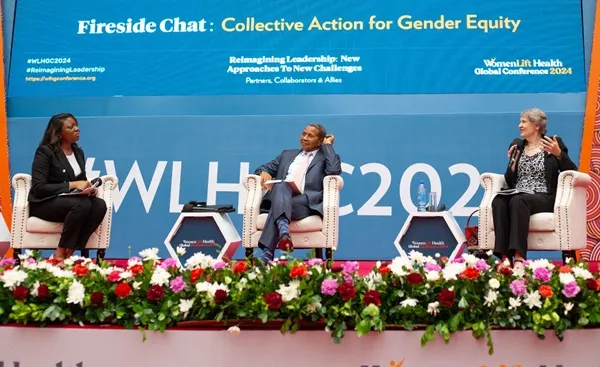Can you envision a society devoid of education? Education stands as the gateway to a realm abundant with opportunities and personal advancement, a fundamental right every child deserves access to. According to Dr. Akinwumi Adesina, the President of the African Development Bank (AfDB), “Quality education is not a luxury; it is a necessity. Every child deserves access to a quality education, regardless of their background or circumstances.” Education is the bedrock of development, empowering individuals and driving national progress. In Africa, AfDB stands as a crucial partner in this endeavor. By providing financial resources, technical expertise, and policy guidance, the AfDB tackles the multifaceted challenges hindering education systems across the continent. This article discusses the AfDB’s transformative impact on education in Nigeria and Malawi, highlighting specific examples and outlining areas for continued focus.
Nigeria
Nigeria faces a complex education landscape, with significant disparities persisting. AfDB has implemented strategic programs to bridge these gaps. Infrastructure development, such as the “Senior Secondary Education Project” (2013), has been crucial in constructing and equipping 200 new senior secondary schools across six geo-political zones. Teacher training and development are also essential for a functional education system. The “Nigeria Education for All” (EFA) Project (2008), valued at USD 1 billion, has supported the training of over 50,000 teachers across the country.
The Girls’ Education Project (GEP) has been instrumental in breaking the gender gap in education, providing scholarships and stipends to over 900,000 girls from disadvantaged backgrounds. The AfDB promotes gender-sensitive pedagogy and encourages inclusive policies to address unconscious biases.
Despite these efforts, significant challenges remain, such as reaching out to out-of-school children, ensuring quality, and building long-term impact. The AfDB can explore innovative solutions like mobile learning units, community-based education programs, and flexible learning schedules to reach these marginalized populations.
To ensure the long-term sustainability of AfDB-funded projects, the AfDB can support the development of public-private partnerships (PPPs) and foster community involvement in school governance and management. This will create a sense of ownership and ensure the continued success of AfDB-supported programs.
Malawi
According to UNESCO, Malawi has a total of 4.5m pupils enrolled in primary and secondary education. Of these pupils, about 3.7m (83%) are enrolled in primary education. In Malawi, 11% of children of official primary school ages are out of school, with poorer children most likely to fall into this category. Based on the educational attainment of 15 – 24-year-olds in 2010, 5% received no education at all, 57% failed to complete primary school, 19% attended secondary school but failed to complete their secondary education, 7% completed secondary education and 1% studied beyond secondary level. Malawi’s education system faces similar challenges to Nigeria, with high dropout rates and limited access to quality education, particularly in rural areas. However, the AfDB’s interventions in Malawi have a distinct focus on Early Childhood Development (ECD), recognizing its critical role in laying a strong
Malawi’s education system faces similar challenges to Nigeria, with high dropout rates and limited access to quality education, particularly in rural areas. However, the AfDB’s interventions in Malawi have a distinct focus on Early Childhood Development (ECD), recognizing its critical role in laying a strong foundation for lifelong learning.
The Expanding Early Childhood Education Project (EECE) in Malawi, launched in 2014, aims to increase access to quality ECD programs across the country. The project, valued at USD 80 million, provides funding for the construction of new pre-primary schools, particularly in underserved rural areas, and supports the training of ECD caregivers. The AfDB also supports the development of age-appropriate learning materials and curricula that cater to the specific needs of young learners in Malawi.
READ ALSO: World Bank’s Influence on Ghana’s Education Revolution
The EECE project also focuses on building capacity for ECD caregivers, providing them with training on child development, play-based learning methodologies, and early literacy and numeracy skills. The AfDB also supports mentorship programs that connect experienced caregivers with recruits, fostering knowledge sharing and best practices within the ECD sector.
Community involvement is crucial for the long-term sustainability of ECD programs, and the EECE project includes components that mobilize communities to support the construction and operation of pre-primary schools. The 2020 National Statistical Office of Malawi reported a 40% increase in pre-primary school enrollment since the EECE project’s inception.
However, challenges persist, such as limited funding, quality assurance, and transition to primary education. The AfDB can advocate for increased government allocation and explore innovative financing mechanisms to bridge the funding gap.
The AfDB’s interventions in Nigeria and Malawi demonstrate its commitment to improving education across Africa. By providing financial resources, technical expertise, and policy guidance, the AfDB acts as a catalyst for transformation. In Nigeria, the AfDB tackles infrastructure development, teacher training, and girls’ education, striving to bridge the gap in educational opportunities. In Malawi, the AfDB’s focus on Early Childhood Development provides young children with a strong foundation for lifelong learning.
However, addressing the complex challenges requires continued collaboration between the AfDB, national governments, local communities, and the private sector. By working together, these stakeholders can ensure that all children in Africa have access to a quality education, empowering them to reach their full potential and contribute to a brighter future for the continent.


